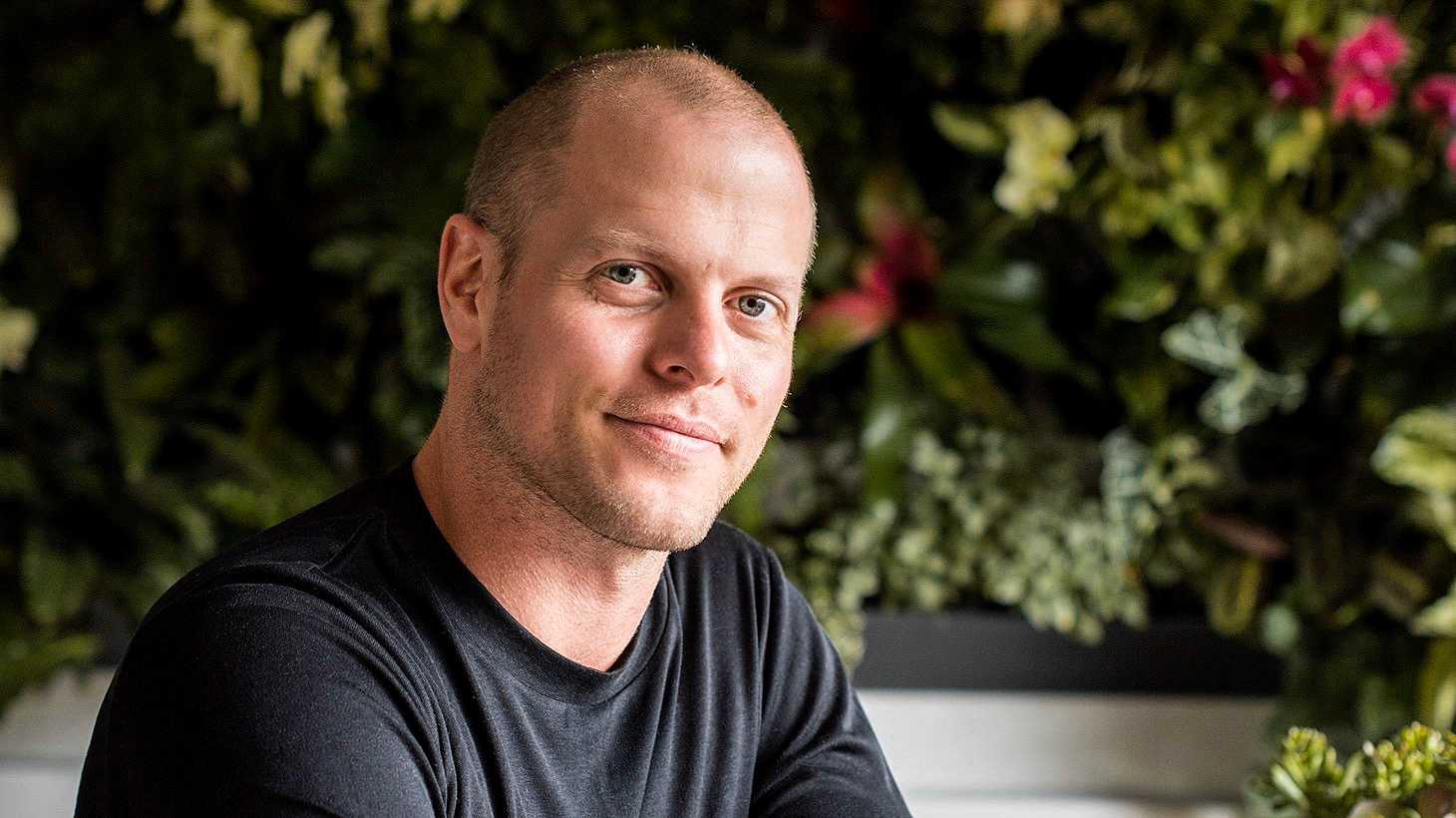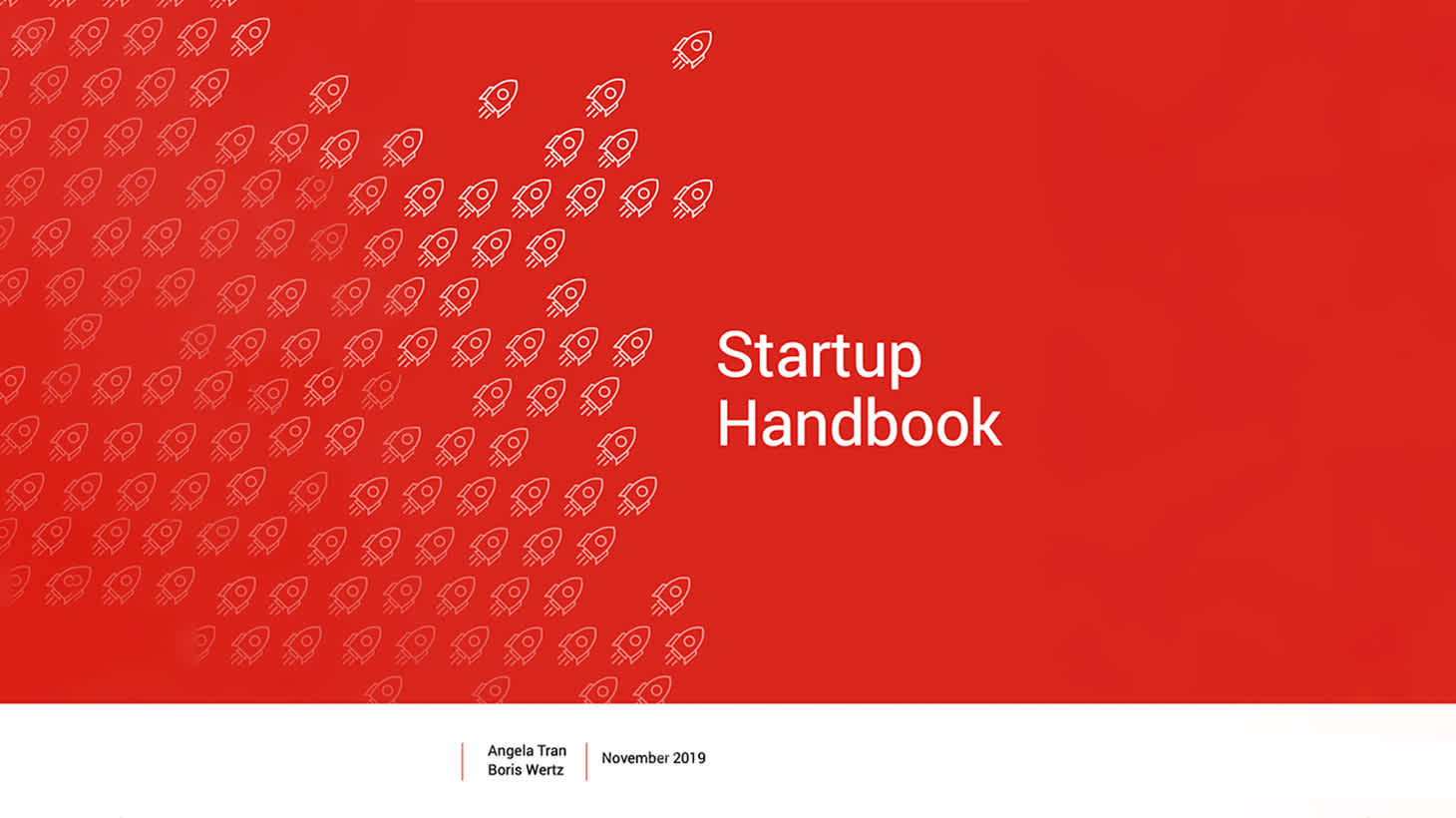← Go back
Startup Investing: 9 insights from a fireside chat with Boris Wertz


When I discovered the Vancouver Tech Collective’s last speaker event of 2019 was going to be a fireside chat with venture capitalist Boris Wertz, I leaped at the chance to attend.
I was excited to hear from the successful entrepreneur, whose career began in Germany in 1999, when he co-founded JustBooks, an online marketplace for used/out-of-print books.
The business boomed and expanded across Europe, before being sold to AbeBooks in Victoria, BC in 2001. But instead of moving on to another company, Boris came to Canada.
For several years, he served as COO of AbeBooks, dealing with marketing, business development, product management, and international operations.
Then in 2008, AbeBooks was sold to Amazon in a multimillion-dollar deal—giving Boris the funds he needed to transition into a new life as an angel investor.
A decade later, Boris is founder of Version One Ventures and an accomplished venture capitalist. Here are some of the key insights I took away from this fascinating event:
1. An investor is a coach, not a player
Boris said that when he first became an investor, it was hard to give up being an entrepreneur and an operator, and he sometimes still misses it.
Partly because you want to feel the excitement again, of building a startup... Partly because you've acquired a bunch of experiences that could help the entrepreneurs.
In the first few years, you really want to jump on the field and play again, and you actually want to be part of it.
“When you go over to being an investor...you're not the player anymore. You're the coach—and that is a very hard transition,” said Boris.
But, Boris says, you can’t invest in multiple companies and keep across all the details.
There's just no way you can go back to… really getting deep down in the trenches.
Plus, you ultimately want to invest in entrepreneurs that can take decisions on their own—and there's a thousand decisions you need to take as an entrepreneur on a daily basis.
One benefit of being an investor with a portfolio of startups, says Boris, is that you don’t suffer from the rollercoaster of highs and lows like the operators.
That’s because in a portfolio, there's always some things that go well and some things that don't go so well. But as a sum, it works out pretty well.
Nevertheless, he says, empathy is crucial—if things go really bad, you have to support the entrepreneur and show him or her a way forward.
I think having that empathy is much easier when you have been an operator yourself and you went through these ups and downs and really understand how it feels.
2. Invest early in networks and diverse locations
At Version One Ventures, Boris says he's squarely focused on the early stages of investment—pre-seed and seed—with rounds from as low as $500,000 up to $3 million.
But also SaaS companies that leverage data network effects and AI, machine learning. We've been spending a lot of time in crypto as of late.
We're very much focused on companies that leverage network effects. So companies that do marketplaces, social platforms, and platforms in general.
Boris invests across North America, but tends to choose smaller locations, with a current portfolio of about 50 active companies.
That strategy has worked for us really well. Within the areas, we really understand trying to find the best and most ambitious entrepreneurs that we can find.
There's about a third in Toronto, Waterloo is about a third in the valley. And the other third is really spread across Vancouver, Seattle, New York, LA, Edmonton, Halifax.
3. Focus on unique ideas and passionate, talented people
Boris says that he sees about 1,000 companies every year and when deciding whether to invest, he looks at the uniqueness of their ideas.
Or, this is a really unique approach to a problem that you’ve seen before—but you’ve never seen that approach before.
Usually... there's this “Aha!” moment, where you see something and realize you didn't even know that problem existed, so, you didn't really know that market existed.
“One great benchmark is always “Have you seen this before?”
Boris says he considers the big idea, but the potential market size doesn’t really matter, so much as whether the time is right, and whether the zeitgeist is heading that way.
Ultimately, he says, it comes down to entrepreneurs and their team, and how passionate, determined, talented, and clear they are about what they want to build.
They truly, deeply care about solving that problem. Even if they never raise funding, they'll just spend their time doing it. That's the determination, the passion we're looking for.
Every single detail about the market, every question you ask, they have an answer for it. There is nothing that they have not thought through.
Have people spent a lot of time thinking about that problem, in their spare time, on weekends? Have they been trying to figure out that problem on the side?
Boris says this is particularly important, because building startups is incredibly hard and they fail most of the time. It can take 10 years to build a really successful startup.
If you, as an entrepreneur, don't really have a passion for solving a specific problem, you’re probably not going to have the energy and the stamina to go in for such a long time.
Boris says he tries to find teams that are as close as perfect to possible.
Ideally, you get people in a room where somebody can build product, somebody has really great design skills, somebody loves to sell and market.
If you’ve three techies, but nobody wants to sell or do marketing, that's really tough. If you have three business people, but no one can build product, that's really tough.
More and more, entrepreneurs must also be able to tell a very concise, clear story about what they want to build and why they're building it, says Boris.
If you figure that out, fundraising becomes easier. Hiring becomes easier. Getting partners becomes easier. Getting PR media coverage gets easier.
We live in such a noisy world with social media and multiple startups competing for the same customers. To really get through the noise, you need to have a compelling story.
4. Be a trusted, honest partner
Among Version One Venture’s core beliefs is the idea of being a trusted partner and cheerleader for the companies in their portfolio, says Boris.
If you try to hide what's going wrong, firstly, I think you just betrayed yourself. Secondly, nobody can help you fix it. That's just not the right approach to solving problems.
You never want to have any surprises. The best entrepreneurs are incredibly honest about the things that go well and the things that don't go well.
In turn, entrepreneurs need to understand investors are on their side, and be honest with them, says Boris.
But at the same time, we are the biggest cheerleader of our entrepreneurs, to help them achieve the next level and move forward.
We've just built up a trustworthy relationship with them. We don't hold back on our opinion when we think that things need to get better and provide constructive feedback.
5. Keep learning and live in the future
Boris listens to podcasts or reads for about three hours a day, to get the latest industry news and activity, listen to other investors, and dig into sectors like crypto.
So that's really our challenge. We can't even necessarily look at certain categories, as often these categories don't even exist.
Whenever somebody creates a category, names a category, like the sharing economy, that's way too late for research investment. You should have invested three years before.
You have to live in the future… and spend time with entrepreneurs and thoughts and ideas.
In early stage investing, you're going to make the biggest return when you see something ahead of everybody else. Something at the edges that looks a little weird.
Learning is incredibly important.
I think the biggest challenge as an investor is you have a limited amount of time and you need to try and figure out how much you spend and allocate to different areas.
Podcasts Boris recommends:

6. Dedicate time to hiring — and hire entrepreneurial Swiss Army knives
Boris also shared some of the advice just published in his new e-book, Startup Handbook, which offers guidance on building your team, your organization, and your investor base.
You want to have incredibly entrepreneurial people that can do three or four things at the same time.
“When you hire after the seed, and you try to build your first team, you need to go for these athletes, for these Swiss Army knives. Don't hire any specialists,” says Boris.
Boris says entrepreneurs often underestimate how much time to invest in hiring, especially with so many other exciting developments happening at a seed startup.
Otherwise, the foundation of your startup, these first important 10 to 15 people, are just the wrong ones.
The right instinct is to reserve resources and time to find the best potential people.
You feel the pressure all the time, and you’d rather be doing things than focus on hiring. Everybody understands that instinct, but it's the wrong instinct.
Boris also believes it’s important that entrepreneurs who work around the clock should make sure all these early hires have a strong entrepreneurial drive.
As soon as you feel like there’s one bad apple in there, someone that goes home at five, you have to pull on the break. This is the first person to go.
“You have to make sure that the entrepreneurial culture that you created as the founders continues as long as possible,” says Boris.
Boris explains that it’s different when you have 1,000 employees, when you’re naturally going to attract people with different priorities—but this doesn’t apply to seed startups.
Work-life balance is very important, but at the very moment when you are struggling for survival, there's no way you can have somebody prioritize anything else over the startup.
7. As your startup grows, pay attention to structure and scaling
As a startup team gets bigger, Boris says, more challenges arise.
And then you grow. You have the first manager, and you have to have a little bit of hierarchy and you have to start having clearly defined responsibilities.
Everybody's involved in everything. Everybody feels like they're part of a small family. Super dedicated, it's your baby.
When you are 10 to 15 people, everybody knows everything.
Boris says one of the biggest challenges here is that suddenly founders have to figure out how to convey the startup’s vision, motivation, and goals are across the company.
If you continue as a very hands-on founder and don't think about structure, organization, or how to transport the message across the company… it's just not going to work out.
It's a super important and super crucial transition to make. You just need to be very careful and very diligent about building the organization and putting in these scaling processes.
“Many entrepreneurs struggle and ultimately fail to make this transition as their startup grows”, says Boris.
You need to figure out how to involve everybody with all hands meetings, how to get everybody still on board with the vision even though you're not as close anymore.
Later on, you really have to figure out the organizational structure where people get into more specialized roles… You need to figure out who's on your senior management team.
This feels so clear when you are only 10 to 15 people. Often, the goal is just to survive.
8. Look out for solid investors, as well as ones that hurt your business
As Boris explains, there are three types of investors…
The moment you have one of those bad investors in your business, I think you’re done.
Then there's the ones that actually hurt your business, because they have strong opinions that are not aligned with your opinions and your vision.
There's the ones that are super helpful. There's not tons of them, and they're hard to get. There's the ones that don't help, they don't hurt, they sit on the sidelines, they’re OK.
Of course, you can’t always get your ideal investor, but even solid investors can make a massive difference, as long as you trust each other, and stay honest and transparent.
When you have these investors on your side, they’re informed, they trust you, and they’re excited about the company. You have an incredible support bench you can leverage.
That’s really where some magic can happen and people step up. I see it all the time, when you have a really good investor group working together.
9. Don’t fundraise if you’re not completely ready
These investors look at the company from the outside with imperfect information. They think this looks like a super good company and they put it on a pre-emptive term sheet.
“One of the challenges facing startups is making sure not to begin fundraising with early investors who have not done their due diligence”, says Boris.
When reality strikes, and your startup turns out not to be ready, then investors may renegotiate the deal for a low valuation, or pull the term sheet altogether.
Ultimately, the best would have been to just not start fundraising in the first place.
Do you really want to walk away now that you've done all that work? Probably not. So you take that not-so-great term sheet.
Both of these situations are just sub-optimal. You spent a lot of time with that investor. Either you don't have a term sheet or you have a term sheet that is not so great.
Of course, founders like the idea of not having to fundraise, that someone believes in their startup without doing due diligence, submits a great term sheet, and they can all move on.
That's a beautiful vision. Everybody buys into that. It would be great if that happened. It just happens very, very rarely.
My final thoughts
There were so many more stories and examples that Boris mentioned at the Tech Collective’s fireside chat, it was impossible to include them all here. So I’m glad Boris has put together the Startup Handbook, concentrating all the knowledge he has gained from his decades of experience as both an entrepreneur and investor.

While I’m still reading the Startup Handbook, I have already noticed lots of helpful tips in there on establishing company culture, communication processes, and a company playbook. In particular, I enjoyed the section about building distributed teams.
At Pieoneers, we have refined our communication processes, work tools, and team culture to ensure an efficient distributed team process, a lean process. It is great to see this recommendation becoming a standard practice!
The Pieoneers team is always looking for ways to improve our web and mobile app development process, and we love to share our knowledge with our clients.
Reach Out to Usor Book an Appointment
Tell us how we can help with your technology strategy and make sure all your online projects are an investor’s dream!

Olena Tkhorovska
CEO + Co-Founder